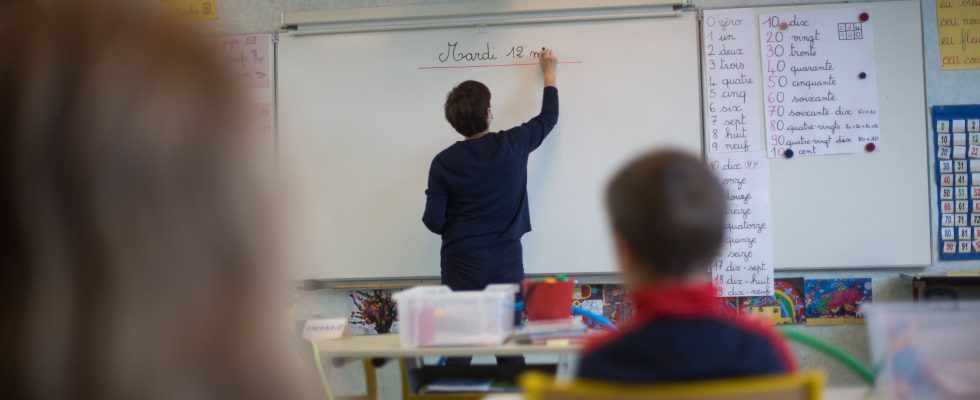In a previous column, I talked about Teddy Lussi-Modeste’s film, No waves, the story of a suburban teacher wrongly accused of harassment by one of his students. I regretted the director’s lack of personal commitment, missing out on the great film on the current state of education in certain establishments. But here isAmal, Jawad Rhalib’s film shows that you don’t necessarily need personal commitment to make a great film successful.
Amal is a teacher in a high school in Brussels. We might as well say it right away, Lubna Azabal, the actress who plays the title role, is very strong and magnificent. It’s not a spoiler to announce what we learn at the end: in Belgium, religious education is compulsory in schools, which must all offer religion courses, whether Catholic, Protestant, Jewish or Muslim. It is up to parents to enroll their children, but those who do not want to take religion classes are not exempt from moral classes.
Ignoring this important detail, I wondered throughout the film what this school was like where almost all the students are Arab and take Koranic lessons. The French teacher is also Arab, but not very versed in religion. Amal lives with a guy who doesn’t seem very religious either. She is dealing with a class full of diversity, but not very receptive. She has trouble with her teenagers. We feel like she’s not going to make it. She attacks a mountain of ignorance, prejudice, arrogance, indiscipline, a pack of madmen looking for prey to satisfy their violence.
In Lussi-Modeste’s film, the escapist victim is the professor. There, it’s Mouna, one of the students, suspected of being a “dyke” and accused of thus blaspheming Allah. She defends herself via social networks, but we quickly understand that she will not be able to win.
The ultimate taboo: beauty
As in Lussi-Modeste’s film, the college management has only one objective: no waves. But in Rhalib’s film, the teachers are much more courageous, and, despite her cowardice, the director, played by Catherine Salée, does not become the incarnation of absolute evil. His blindness has limits, which was not the case for the infectious director of the French college, played by Francis Leplay.
The two films also respond to each other on a question which is not mentioned as such, the ultimate taboo: beauty. In No waves, the slanderer is as remarkably beautiful as the “satanic dyke” in Amal. But all the paths to lynching pass through sex, from the clumsy caricature that students pass on in class, sneering, to the filthy messages on the Internet, to the giant tags on the walls of one’s house and to all the homophobic insults that result to Islamist-style beheading animations.
Why in films are characters whose sexuality escapes the norm almost always beauties? Could it be that the public, since the dawn of time, in the theater then in the cinema, cannot conceive of heroes without the dazzling physical charm which marks them as creatures of the devil? And, in “real life”, does their beauty necessarily make them marginalized, or is it their marginality that beautifies them? Don’t count on me to answer.
As for the incarnation of evil, we cannot escape it. It’s Fabrizio Rongione who’s doing it. He is perfect in the role of Nabil, the professor of Koranic education, fomenter of trouble, so clean about himself, calm, suit and tie, well-trimmed beard, and who in this calm, honeyed voice, tells you the worst nonsense of the kind of moratorium on the stoning of adulterous women. With him, we don’t ask ourselves aesthetic questions, we just want to punch him in the face. Like in all successful films.
Christophe Donner, writer
.
